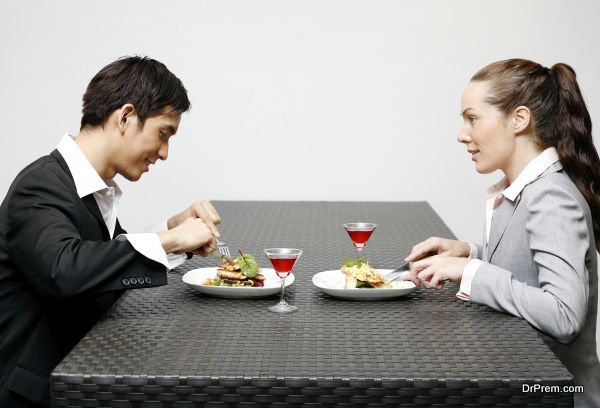Every restaurant owner must ask themselves the question: Do I really need a liquor license? If you want to serve alcohol, the answer is obvious. If you’re torn, however, there are many facets to consider. If you’re considering purchasing an alcohol permit, keep the following steps and strategies in mind.
Applying for a Liquor License

In order to apply for or buy a transferred liquor license, you’ll need to go through your state’s Alcohol Beverage Control agency. They’ll help you determine the specific qualifications for obtaining a liquor license, explain limitations, and outline the legal stipulations regarding alcohol sales. Rules vary by state, county, and city, and it’s important to do your research before attempting to purchase a liquor license. If you’re hoping to secure an alcohol permit before your restaurant opens, do it as quickly as possible, as the application process can take months.
General Qualifications
While qualifications vary based on location, there are a few general qualifications that every applicant must meet. You must be 21 or older, as you can only sell alcoholic beverages if you’re old enough to drink them, and you must have a clean criminal record. You’ll also need a seller’s permit from local jurisdictions first, and take a beverage training course before you can apply for a liquor license.
Choosing the License
There are a large variety of alcohol permits, and the names and parameters of each are dependent on state and locality. The type of liquor license your restaurant needs is largely reliant on the types of alcohol you hope to serve and your budget. Beer and wine licenses are the cheapest to procure and the easiest to find, but many restaurateurs want to be able to serve cocktails, which would require a permit that allows for the sale of liquor.
Cost Concerns

There’s no way to nail down specific prices for liquor licenses, as they can vary based on a variety of factors including location, competition, and the state of the local economy. Depending on the type of license you need, you might spend a few hundred dollars, or you might find licenses that cost upwards of hundreds of thousands of dollars. Because some states have placed caps on the amount of licenses that can be sold, price skyrockets once those permits are depleted.
There are numerous factors that can further increase the costs associated with alcohol sales in your restaurant. Some states and cities have regulations about the hours during which you can sell, and the later you stay open, the more you’ll have to pay. Some states also require restaurants to pay extra for serving alcohol on Sundays, and you’ll also need to shell out more if you manufacture or distribute alcohol on the premises. If cost becomes too much, it’s wise to look for help from private restaurant investors who will trade the necessary funds for a stake in your restaurant.
Finding the License
In most states and counties, the amount of alcohol permits available is limited, and for most areas, the limit has already been reached. Does that mean you can’t serve alcohol? Not necessarily. You can always find the alcohol permit of your choice, if you’re willing to pay the right price. Most new restaurateurs will have to purchase an alcohol permit from a pool of sellers who had already procured them. Because the amount of liquor licenses are lacking, competition can drive up prices, and buying from private sellers can be extremely costly. Most new restaurant proprietors choose to go through liquor license brokerage services like License Locators, Inc.. It’s effective and often cheaper to use these services as you’re given access to a range of listings for the permit you’re pursuing.
Liability Insurance
If you decide to sell alcohol, you’ll need to look into liquor liability insurance policies from Trusted Choice that can protect you should anything come up. If an individual becomes intoxicated at your business and injures themselves or someone else, you’ll want to ensure you’re covered.
There’s no denying that alcohol sales can make up a large portion of restaurant revenue, and many guests are looking for a full dining experience, which includes alcohol offerings. However, cost can be high, and finding the right permit can be a challenge. Keep these facets in consideration when determining whether a liquor license is right for your restaurant.
Article Submitted By Community Writer







